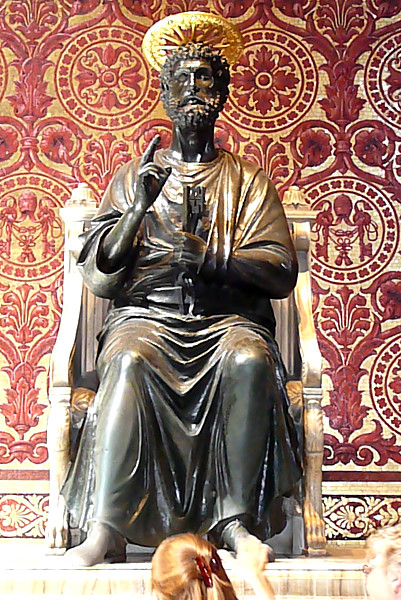I am writing my sermons for Lent this year based on 2nd Peter 1. Peter tells us to add to the faith, the faith that is a gift that can’t be earned, certain things. Of course I get nervous when I do this because I had mentioned at a Pastor’s conference that there are things that Peter says need to be added to our faith, not to save us, but to keep us from being ineffective and unproductive. A Pastor disagreed with me. Well not with me but with Peter, and I guess really with the Holy Spirit. Anyway I came across this while looking for something else –
If there is one sin which towers above all others as the ugliest of all, it is that sin which Jesus contrasted with all other sins, that sin for which he said there would be forgiveness neither in this world nor in the next, namely, the sin against the Holy Spirit. For other sins the possibility of forgiveness remains; for this sin, none. Christian interpreters have usually agreed that the sin against the Holy Ghost, whose mission it is to testify of Christ, is the rejection of Jesus Christ as personal Saviour. This rejection, if continued, brings one into the life to come without any prospect of a blessed immortality, and with no other promise from the lips of Christ but that of God’s abiding wrath upon those yet in their sins. It converts the reversible state of spiritual death into irreversible eternal death. No man can call Christ Lord except by the Holy Ghost, and whosoever commits the sin against the Holy Ghost is forever without the Savior. Christian believers congratulate themselves often that apparently they have not committed the sin against the Holy Spirit. They confine this gruesome and. abominable rebellion to the world, to those outside of Christ; it is not chargeable to the Christian community. While, however, the Christian community is not guilty of the sin against the Holy Spirit, it is guilty of sins against the Holy Spirit. This explains why the Church, the organism of believers, is such an impotent and peripheral force in the world today. Those who know their sins are covered by God’s merciful atonement upon the Cross, are nevertheless powerless because, while the Spirit is not blasphemed, he is lied to (Acts 5:3), grieved (Eph. 4 :30), resisted (Acts 7: 51), and quenched (1 Thess. 5 :19).
Christians are a holy community with a holy calling (1 Pet. 2 :9, 2 Tim. 1:9), a holy temple of God (1 Cor. 3 :17,6 :19). Redemption has in view their presentation as “holy and unblameable in his sight” (Col. 1 :22ff Eph. 1:4). That the New Testament believers had not attained holiness is clear, but that they regarded the life of virtue as a Divine expectation and a human obligation is equally clear (Rom. 6:1),12:1, Heb. 12:10).The filling of the Spirit does not denote sinless perfection (Phil 3:12) But neither does it denote backsliding as a necessary element in the believer’s life.***
*** Carl Henry, Christian Personal Ethics, Eerdmans Grand Rapids 1957


